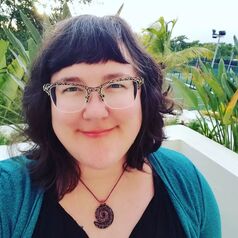
Charmaine N. Willis
Visiting Assistant Professor of Political Science, Skidmore College
Charmaine N. Willis, Ph.D. is Adjunct Professor, Department of East Asian Studies, University at Albany, SUNY, and Visiting Assistant Professor, Department of Political Science, Skidmore College.
Less ![]()
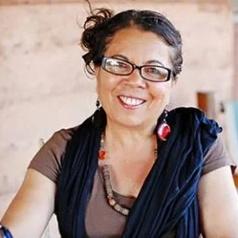
Charmaine Papertalk Green
Research Fellow, School of Allied Health, Western Australian Centre for Rural Health, The University of Western Australia
Born in Eradu, Charmaine is a proud Wajarri, Badimaya and Wilunyu woman of the Yamaji Nation. A visual artist, author, poet, storyteller and social science researcher, she shares her cultural knowledge in many different spheres. Charmaine has written five books, won several awards including the prestigious Australian Literary Society Gold Medal, and her poetry is studied as part of primary and school curriculum. Involved with the Yamaji Art Centre in Geraldton for over 22 years, she is currently their Chairperson. Charmaine was awarded the 2022 Magabala Fellowship 2022 and 2023 Red Room Poetry Fellowship and is a member of the national First Nation Aboriginal Writers Network .
Less ![]()
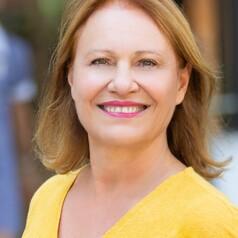
Charmine Hartel
Distinguished Professor, Associate Dean Research Impact, Director Opportunity Tech Lab, Monash University
Professor Charmine E. J. Härtel (PhD, FASSA, FAHRI, FCHRI, FAIM, FANZAM) is Distinguished Professor, Associate Dean Research Impact, and Founding Director of the Opportunity Tech Lab at Monash University Business School in Melbourne, Australia. She is an Honourary Professor at The University of Queensland Business School, Brisbane, Australia and Co-Director of the Queensland Neurodiversity Employment Incubator©. She is an acknowledged preeminent scholar-practitioner in her field, evidenced by election as a Fellow of the Academy of Social Sciences in Australia (ASSA) and Queensland Academy of Arts and Sciences (QAAS), the (US) Society for Industrial and Organizational Psychology (SIOP), the Australian and New Zealand Academy of Management (FANZAM), as well as an elected member of the Society for Organizational Behavior in Australia (SOBA) and Professional Fellow of the Australian Institute of Management (FAIM) and Australian Human Resources Institute (FCAHRI). Her awards include the inaugural AHRI HR Academic Award, Australian Psychological Society’s prestigious Elton Mayo Award for scholarly excellence, the Martin E. P. Seligman Applied Research Award, and the Australian and New Zealand Academy of Management (ANZAM) Research Supervision Excellence Award. She is the awardee of more than AUD$3.3million in Australian Research Council (ARC) grants and over $1.3 million for commissioned research. She is past President of ANZAM, Founder and Chair of the Senior HRM Executives Roundtable, Co-Founder of the Key Centre for Human Factors and Applied Cognitive Psychology, Co-Founder and Co-Organizer of the International Conference on Emotions and Organizational Life, and Past Division Chair and Executive Team Member of the Gender and Diversity in Organizations Division of the U.S. Academy of Management (comprising 770 U.S. members & 401 non-US members).
Professor Härtel is a leading global authority on workplace diversity and inclusion, co-founder of the study of emotions in organizations, and pioneer in the newly developing field of fostering employment and entrepreneurship of under-represented groups. Her internationally recognized research program is building holistic theory and evidence-based practice on ways to address disadvantage in employment and entrepreneurship. Her work appears in over 100 book chapters and encyclopedia entries and over 600 refereed journal articles including Academy of Management Review, Journal of Applied Psychology, Leadership Quarterly, Journal of Business Venturing, Human Relations, and Journal of Management. She is Series Co-Editor of Research on Emotion in Organizations. She is primary author of a wholly original Australian HRM textbook, shortlisted across all university disciplines for the Australian Awards for Educational Publishing; the book emphasizes HRM as a process and viewing the employment relationship from a wellbeing perspective. She is past Editor in Chief of Journal of Management & Organization (the official journal of the Australian and New Zealand Academy of Management), past Associate Editor of Academy of Management Learning & Education and Journal of Managerial Psychology, and current editorial board member on numerous journals including Organizational Psychology Review, Human Relations, and British Journal of Management. The scholarly impact of her work is demonstrated by 15,508 citations in Google Scholar, an h-index of 58, i10-index of 158), and 4,062 citations in Scopus (h = 32), receipt of 19 best paper awards and inclusion of her 2002 piece in the top 50 most cited articles of the decade for Leadership Quarterly.
The high social impact of her translational research is evidenced by numerous international awards, including 5 awards for innovation in organisational practice. Examples include, co-development of PCC Method to improve physiological and psychological wellbeing of medical students and doctors, patients and their caregivers; business applications of her methodologies for quality decision-making in stressful environments (e.g., U.S. Naval Training Center’s cockpit crew decision-making training; AirServices’ degraded modes procedures and training), effective execution of change strategy (e.g., Palladium’s 4C Model), health-focused leadership and safety climate (e.g., Queensland nursing program; U.S. Federal Aviation Administration crew resource management guidelines), positive workforce integration (e.g., Australia Post’s diversity climate practices, Rio Tinto Iron Ore’s procurement system to support Aboriginal contractors in Pilbara), talent management (e.g., Australian Public Service), ethical leadership development program (e.g., Victorian Department of Transport), development of psychological capital (e.g., Victorian SES), organisational culture transformation (e.g., Victorian State Service Authority’s Positive Work Environments Toolkit to address workplace bullying). Other examples include her appointment as an expert advisor for the European Union workplace diversity forum, publication of Diversity at Work: The Practice of Inclusion in the prestigious SIOP Professional Practice Series, and frequent invited keynotes at leading events (e.g., APEC, Autism @ Work Summit, Diversity Council Australia, Australian Institute of Management, Australian Human Resources Institute, ADC Future Summit, Pride in Diversity).
Professor Härtel is widely regarded as a leader in the development of early career scholars, which has been formally recognized with the prestigious Janet Chusmir Service Award from the (US) Academy of Management, supervisor awards from two universities (Monash, Deakin), and the ANZAM Research Supervision Excellence Award. Her former PhD students hold key positions in both academia (e.g., UQ, Monash, Griffith, Deakin, Swinburne, Flinders, RMIT, Macquarie, Sunway, University of Edingburgh) and practice (e.g., Infosys, Amcor, Australian Centre for Corporate Social Responsibility). She has taught in university and executive programs in the USA, Australia, Germany, Italy, Singapore, and Sweden.
Less ![]()
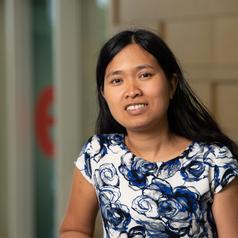
Chau Minh Nguyen
PhD Candidate in Marketing, HEC Montréal
Chau Minh Nguyen is interested in ethics, Big Data and textual analysis in marketing research. She aspires to produce works that address social issues and contribute to the well-being of the community.
Less ![]()
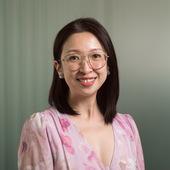
Chau Thien Tay (Jillian)
Research Fellow, Monash Centre for Health Research and Implementation, Monash University
Less ![]()
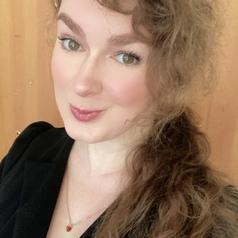
Chaynee Hodgetts
Barrister & Honorary Lecturer in Emergency Medical Law, Queen Mary University of London
A criminal defence and inquest practitioner, with a reputation for looking at cases differently, and her focus on each client as an individual. Chaynee practises predominantly in crime and inquests. Her further sub-specialisms include forensic science, maritime criminal law, maritime inquests, Higher Education inquests, and medical and mental health inquests. She currently accepts instructions nationally, with a focus on London and North Wales.
Chaynee is an Honorary Lecturer in Emergency Medical Law at QMUL and the Blizard Institute – and has been involved with providing legal teaching on their MSc Emergency & Resuscitation Medicine since 2019.
Chaynee is also Honorary Lecturer in Criminal Law (Department of Law), and Honorary Lecturer in Medicine: Medical Law (Department of Medicine) at Bangor University.
She was the second contributor to the 5th edition of the leading national Undergraduate textbook in Criminal Law – Smith, Hogan and Ormerod’s Essentials of Criminal Law – assisting the principal author, Professor David Ormerod CBE KC.
Prior to practice, Chaynee spent over a decade as a University Law Lecturer and academic, teaching Criminal Law, Evidence, and Media Law, working as Head of Admissions for Law (Law Admissions Tutor), and as Director of an Innocence Casework Unit.
As a member of Middle Temple since 2012, she was Called to the Bar in 2019, and qualified as a Pupil Supervisor with Middle Temple in 2024.
She is the Adviser (Lay Non-Medic) in Teaching & Learning and Examinations for the Royal College of Pathologists (RCPath), and Full Member of the British Academy of Forensic Sciences (BAFS).
She is also a member of the Criminal Bar Association (CBA), the Inquest Lawyers’ Group (ILG), the Female Fraud Forum, the Honourable Society of Middle Temple, the Society of Legal Scholars (SLS), Women In Criminal Law (WICL), the Peer Review Panel of the International Journal of Emergency Services (IJES), and a Fast-Track Fellow of the Royal Society of Arts (FRSA).
Before lecturing, she was a Deck Rating in the Merchant Navy, and, as a member of the Cruising Association, Young Cruisers’ Association, Royal Burnham Yacht Club, and Bar Yacht Club, she maintains a keen interest in getting afloat whenever possible. Her seagoing qualifications and experience also provides useful insight in trials or inquests in maritime cases.
Chaynee also has a keen interest in pre-hospital care and pre-hospital emergency medicine. In addition to her legal work in this area, she successfully completed the British Association for Immediate Care (BASICS) Pre-Hospital Emergency Care (PHEC) Course, and is now an Associate Instructor on the PHEC. She is also a First Responder with GoodSAM for out-of-hospital cardiac arrests. Again, her qualifications and experience in pre-hospital care also provide valuable additional insight in trials or inquests of a medical nature.
Less ![]()
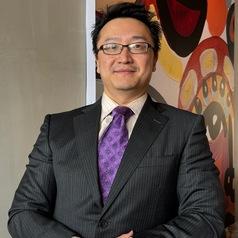
Chee Meng Tan
Assistant Professor of Business Economics, University of Nottingham
I hold a Ph.D in Business Administration from the ESSEC Business School of Paris-Singapore and a doctorate in economics from the University of Cergy-Pontoise in France. My research interest is interdisciplinary and delve into the intersections between political economics, social psychology and cultural studies. I have expertise on Chinese foreign policy and have worked and publish pieces on panda diplomacy. I have appeared on media outlets such as the Washington Post, NBC News, Australian Broadcasting Corporation, etc., and have also appeared on a radio documentary entitled "How 'Panda Diplomacy' Led To Conservation Success" on the well-known US Radio Program, Science Friday.
Less ![]()

Chee Yew Wong
Professor of Supply Chain Management, University of Leeds
Chee Wong is a professor of supply chain management at Leeds University Business School. Prior to this, he held a chair in logistics and supply chain management at Hull University Business School. He teaches logistics, supply chain and operations management at undergraduate, MSc, MBA, PhD and executive levels. He has also more than nine years of industrial working and consultancy experience in operations, purchasing, production, inventory and distribution management and supply chain design with SMEs and multinational companies specialised in beverage, retail, consumer goods, toys, engineering, metal production, and polymer distribution.
His research interests lie in the areas of supply chain integration, digital supply chain, supply chain analytics, green supply chain. He has published more than 70 academic and practitioner articles, including high quality journals such as Journal of Operations Management (JOM), International Journal of Operations and Production Management (IJOPM), Journal of Supply Chain Management (JSCM), International Journal of Production Economics (IJPE), Supply Chain Management: an International Journal (SCMIJ), Production Planning and Control (PPC), International Journal of Physical Distribution and Logistics Management (IJPDLM), etc.
Less ![]()
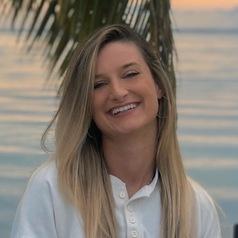
Chelsea Black
Ph.D. Candidate in Marine Ecosystems and Society, University of Miami
I earned a Bachelor of Science from the University of North Carolina Wilmington in Marine Biology, a Master of Science in Marine Conservation from the University of Miami, and am now a PhD Candidate at the University of Miami. My work focuses on the movements of highly mobile shark species and identifying how their habitat use and migration corridors will shift under future global change.
Less ![]()
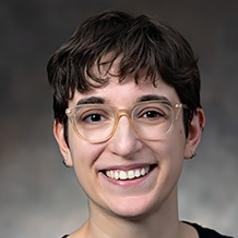
Chelsea Butkowski
Assistant Professor of Communication Studies, American University School of Communication
Dr. Chelsea Butkowski is an Assistant Professor of Data, Media & Identity in American University's School of Communication. Their research examines the relationship between media technologies and identity, including the social practices and effects of everyday social media use. Butkowski's research interests include feminist and queer media studies, platforms and algorithms, visual cultures, and political communication.
Recent work has involved analyses of digital popular culture during U.S. elections and legacies of gender stereotyping in selfies. They are currently undertaking a multi-year study of social media and identity during the COVID-19 pandemic.
Butkowski draws from a background in art history, material culture, and museum studies to situate contemporary digital and visual media within wider historical contexts of communication practice. They also specialize in social scientific media research methods, including content analysis and in-depth interviewing.
Butkowski's research has been recognized with support from major funding organizations and awards at national and international conferences. Their work can also be found in a number of leading communication journals, including New Media & Society; Social Media + Society; Journal of Computer-Mediated Communication; Communication, Culture & Critique; and Feminist Media Studies. Butkowski is also affiliated with the UNC Center on Information Technology and Public Life (CITAP) and the UPenn Center on Digital Culture & Society (CDCS).
Less ![]()
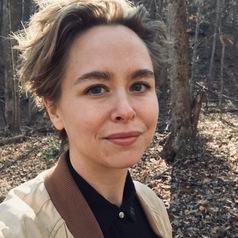
Chelsea Fisher
Assistant Professor of Anthropology, University of South Carolina
Dr. Fisher is an Assistant Professor of anthropological archaeology at the University of South Carolina who studies the deep histories of environmental justice conflicts through community-engaged archaeology. Since 2013, she has been conducting research in and with the community of Yaxunah, Yucatán, Mexico. Her research investigates the historical-ecological dynamics of colonial and modern cattle farming in Yucatán, as well as the history of gold mining in the Carolinas. Her research interests also include the entangled histories of global food systems, interactions among Indigenous and colonial ecological knowledges, and the application of archaeological approaches to environmental justice conflicts.
Less ![]()
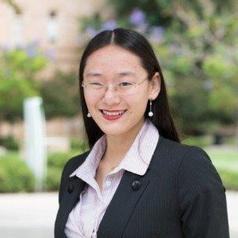
Chelsea Liu
Dr Chelsea Liu is a Lecturer at the University of Adelaide Business School. Her research interests are in the areas of corporate governance, corporate litigation, mergers & acquisitions, and corporate social responsibility. Chelsea holds Bachelor degrees in Law and Commerce from the University of Adelaide, and a PhD specialising in the corporate governance consequences of lawsuits against public companies. Chelsea is a legal practitioner and has worked in inner-city law firms prior to joining academia.
Less ![]()
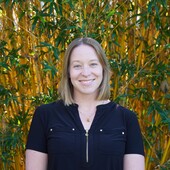
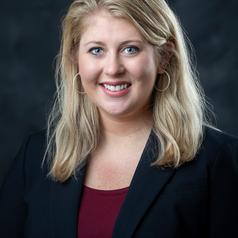
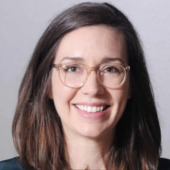
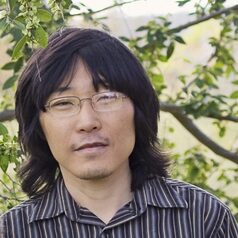
Chen Hou
Associate Professor of Biology, Missouri University of Science and Technology
Dr. Chen Hou is Associate Professor of Biological Sciences at Missouri S&T and Director, Laboratory of Animal Physiology. He joined S&T in 2011 as Assistant Professor. Dr. Hou received Ph.D. and M.S. degrees in Physics from the University of Missouri and a B.S. in Physics from Sichuan University.
Less ![]()
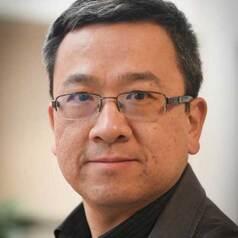
Chen Liu
Associate Professor of Electrical & Computer Engineering, Clarkson University
Dr. Liu's research has been focusing on capturing, modeling and monitoring the software behavior at run-time using hardware-level information.
Electrical and Computer Engineering Ph.D. - 2008 University of California - Irvine
Electrical Engineering M.S. - 2002 University of California - Riverside
Electrical Engineering B.E. - 2000 University of Science and Technology of China
Research Interests:
Processor architecture: multi/many-core multi-threading architecture
Embedded Systems
Power/Energy-aware computing
Interaction between operating system and micro-architecture
Hardware acceleration techniques and reconfigurable computing
Less ![]()
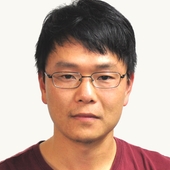
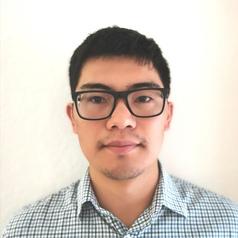
Chengsheng Wu
Postdoctoral Scholar in Pathology, University of California, San Diego
Chengsheng Wu, graduated from the University of Alberta, Canada, with a Ph.D. degree in 2017. He has joined David Cheresh’s lab as a post-doctoral fellow since 2018. He is currently working on how pancreatic cancer cells adapt to cellular stress.
Less ![]()
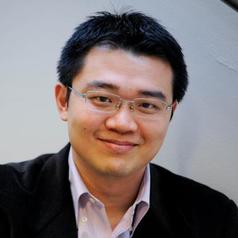
Chengwei Liu
Chengwei Liu is an Associate Professor of Strategy and Behavioural Science at Warwick Business School, UK. He is a Cambridge trained PhD who held a fellowship position at Jesus College Oxford. Chengwei's research programme addresses a fundamental question in strategy, innovation and entrepreneurship: should successes be attributed to skill or luck? His research (luckily) won several awards and are published in management and interdisciplinary journals such as Organization Science and PNAS, gaining media coverage worldwide in the New York Times, Financial Times, and BBC. Chengwei has also won multiple research grants and teaching awards.
Less ![]()
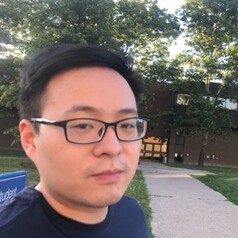
Chenkai Chi
PhD candidate, Faculty of Education, University of Windsor
Chenkai Chi is a Ph.D. candidate in educational studies at the Faculty of Education, University of Windsor. His PhD supervisor is Dr. Shijing Xu. He was awarded SSHRC Doctoral Fellowship and Ontario Graduate Scholarship. His research interests include teacher education and professional development, mathematics and literacy education with cross-cultural perspectives, West-East Reciprocal Learning, curriculum integration, and English as Second Language Acquisition. He worked as a research assistant in Xu and Connelly's SSHRC Partnership Grant Project from 2016-2022 and in Xu's Canada Research Chair Program from 2019-now. He received his Master's Degree from the University of Windsor, where he worked with Dr. Sefton to integrate arts into English language learners’ English learning.
Less ![]()

Cherice Escobar Jones
PhD Candidate, Northeastern University
Cherice is a PhD candidate at Northeastern University in the Department of Writing & Rhetoric and a research assistant in the Bouvé College of Health Sciences.
[email protected]
Less ![]()
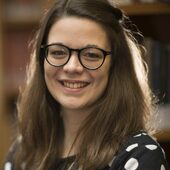
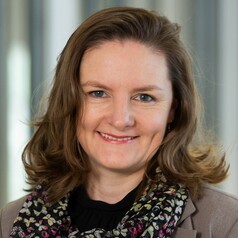
Cheryl Baxter
Head Scientific Research Support, Stellenbosch University
Cheryl Baxter is Head of Scientific Research Support at the Centre for Epidemic Response and Innovation (CERI) at Stellenbosch University and Research Associate at the Centre for the AIDS Programme of Research in South Africa (CAPRISA). Prior to joining CERI, her research focused on clinical trials for HIV prevention, specifically strategies to reduce HIV acquisition among young women and issues related to sexual and reproductive health. She is currently project manager for several projects, including the Genomic Surveillance to Control Pathogen Infections in Africa (GenPath Africa) project that aims to apply genomic epidemiology to guide the public health response, the DSI Africa project that uses big data to elucidate the clinical and epidemiological interactions between COVID-19 and HIV and is part of the steering committee of the Climate Amplified Diseases and Epidemics (CLIMADE) Consortium that is assessing the impact of climate change on epidemics.
Less ![]()
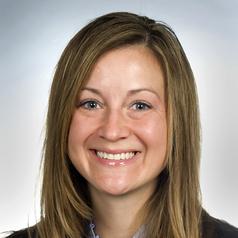
Cheryl Cooky
Professor of Women's, Gender and Sexuality Studies, Purdue University
Cheryl Cooky is a professor of American Studies and Women’s, Gender, and Sexuality Studies at Purdue University. Her interdisciplinary research examines the intersections of gendered dynamics, cultural representations, and sports contexts. She is the co-author of "Serving Equality: Feminism, Media and Women’s Sports (2022, Peter Lang Publishers) and "No Slam Dunk: Gender, Sport and the Unevenness of Social Change (2018, Rutgers University Press).
Her research is published in a diverse array of journals including Communication & Sport, Gender & Society, Journal of Sex Research, Sex Roles, Sociology of Sport Journal, among others. She is the Editor of Sociology of Sport Journal and the past-President of the North American Society for the Sociology of Sport (NASSS).
Committed to making research accessible to general audiences and to translating academic knowledge to advocate for gender equality, Dr. Cooky has been quoted in over 100 national and international news media outlets and has appeared as a guest on over 30 podcasts and national TV/ radio programs, including NPR, PBS Newshour, and Edge of Sports. Her op-ed articles are published in NBC Think epsnW, Huff Post, Indianapolis Star, among others.
Cooky served as a consultant for Humankind Research, a UK-based research consulting firm which informed the development of Nike’s 2019 “Dream Crazier” campaign. She also served as a consultant for Leo Burnett, a top U.S.-based advertising firm which informed the development of Buick’s #SeeHerGreatness campaign. This campaign advocates for equality in women’s sports and media coverage.
Less ![]()
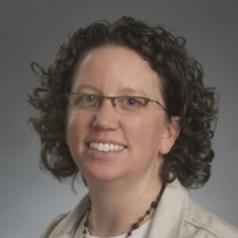
Cheryl Oestreicher
Professor and Head of Special Collections and Archives for Albertsons Library, Boise State University
Cheryl Oestreicher is a Professor and Head of Special Collections and Archives at Boise State University. She has a PhD in Modern History and Literature from Drew University and an MLIS from Dominican University. She previously worked at Auburn Avenue Research Library on African American Culture and History/Emory University, the University of Chicago, Drew University, and Princeton University. Cheryl has taught archives management, reference, and research methods at Georgia State University and Clayton State University. She has been actively involved in the Society of American Archivists and the Academy of Certified Archivists. She was the Editor of Provenance, Journal of the Society of Georgia Archivists and is the author of Archival Fundamental Series III, Reference and Access for Archives and Manuscripts.
Less ![]()
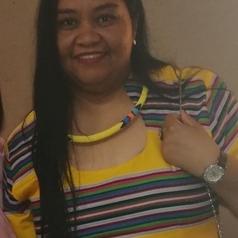
Chesne Albertus
Senior Lecturer in Criminal Justice and Procedure, University of the Western Cape
I am Senior Lecturer in the Department of Criminal Justice and Procedure at the Faculty of Law at University of the Western Cape. My responsibilities range from teaching at undergraduate and post-graduate level, supervision of students' research, research on key issues pertaining to the criminal justice system, access to socio-economic rights in South Africa and the impact it has on crime and criminal justice, to commentary on policy and analysis of court cases from a constitutional and specifically a socio-economic perspective. My research expertise and interests are in human rights, rule of law, corruption, socio-economic rights, poverty alleviation and social inclusion.
I am also a member of the Journal of Anti-Corruption Law editorial team.
https://epubs.ac.za/index.php/jacl/index/
Less ![]()
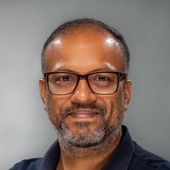
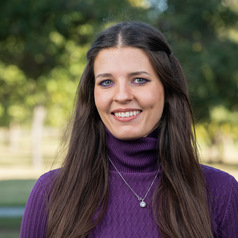
Cheyenne Black
Graduate Research Assistant in the Institute for Public Policy Research and Analysis, University of Oklahoma
PhD Candidate, Political Science
Graduate Research Assistant
Institute of Public Policy Research and Analysis (IPPRA)
University of Oklahoma
Less ![]()
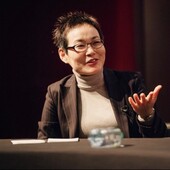
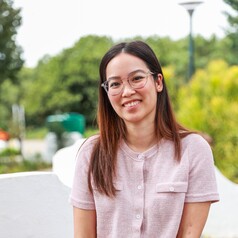
Chia-Yu Chen
Postdoctoral Research Fellow at the Wits Research Institute for Malaria, University of the Witwatersrand
I am a postdoctoral research fellow at the Wits Research Institute for Malaria (Faculty of Health Sciences, University of the Witwatersrand) and the National Institute for Communicable Diseases (NICD). My research is currently focused on using molecular methods to control mosquitoes that transmit malaria.
Less ![]()

Chiara Castelletti
Doctoranda en Psicología clínica y de la salud, con contrato FPI-UAM en el departamento de Psiquiatría (Facultad de Medicina), Universidad Autónoma de Madrid
Se graduó y obtuvo su máster en la Universitá degli Studi di Pavia (Italia). Se especializó en la terapia con niños con diferentes trastornos, en particular con el Trastorno del Espectro Autista. Trabajó como técnico de investigación en la Facultad de Psicología de la Universidad Autónoma de Madrid. Actualmente trabaja como investigadora predoctoral, con una beca FPI, en el departamento de Psiquiatría de la Facultad de Medicina de la UAM y está desarrollando su tesis doctoral.
Less ![]()

Chiara Grazini
Assistant Professor in Political Economy at the Economics Department, University of Tuscia
Less ![]()
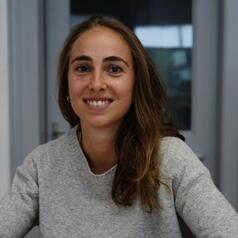
Chiara Lanfranchi
Researcher · CCDP - Centre on Conflict, Development and Peacebuilding, Graduate Institute – Institut de hautes études internationales et du développement (IHEID)
Less ![]()
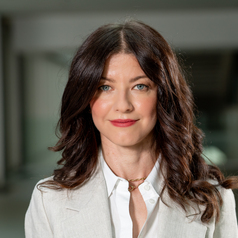
Chiara Longoni
Associate Professor, Marketing and Social Science, Bocconi University
I am a social scientist and Associate Professor of Marketing at Bocconi University in Milan, Italy. I conduct interdisciplinary, empirical research that investigates adoption of artificial intelligence as a tool for social good, with direct applications for companies, law, and policy. A secondary area of research looks at the determinants of positive behavior change and the drivers of sustainability and climate action. I am the recipient of the 2023 MSI Young Scholar award, the 2022 Journal of Consumer Research Best Article Award and the 2021-22 American Marketing Association Research in Practice Best Article Award. I completed a Ph.D. in marketing at New York University’s Stern School of Business. I also hold a M.S. from Bocconi University, a M.A. in Psychology from New York University, and a M. Phil. in Marketing from New York University’s Stern School of Business.
Less ![]()
- Market Data























